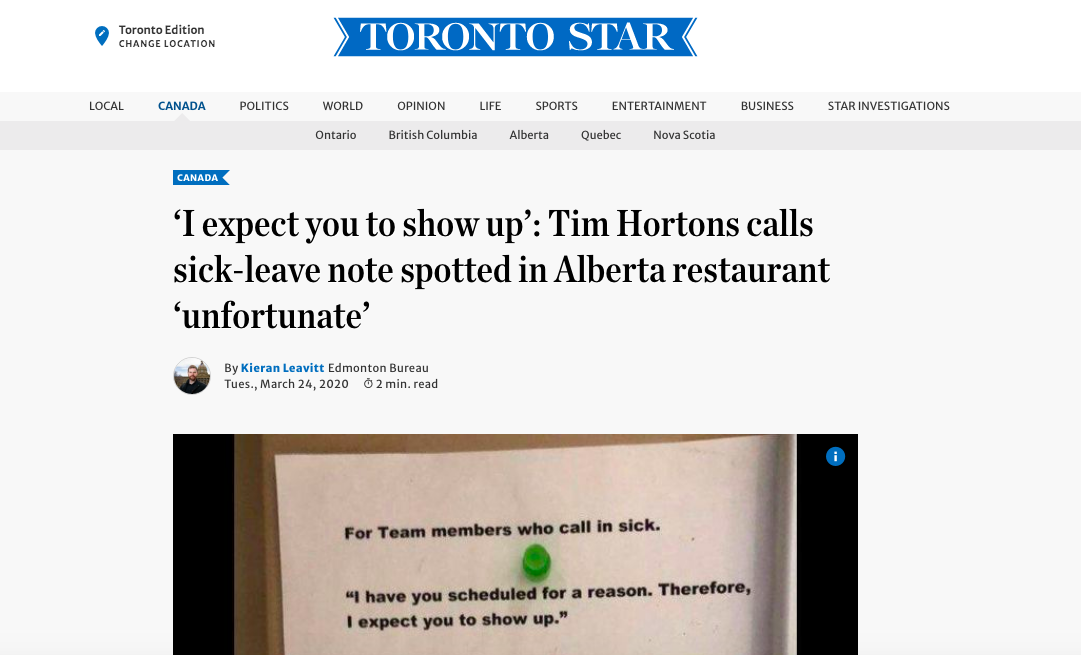April 2020
Yup & Nope: A one-minute (or so) look at brands in real life. Who’s doing it right and who’s doing it all wrong.
If you know me, you know little gets my blood boiling faster than hypocrisy. My tolerance for it is close to nil and I like to think I have a robust BS meter.
My disdain for hypocrisy has actually caused inner conflict with my brand work. It’s hard to stay passionate about brands and branding when I see so many companies being disingenuous, and frankly, just plain despicable. The COVID-19 pandemic has shone a big, bright light on many things. The authenticity/hypocrisy of brands is definitely one of them.
Teksavvy
Teksavvy was one of the first brands in my world that reacted to the pandemic. And I mean to emphasize the ‘acted’ in ‘reacted’. Unlike many brands who sent out vague ‘we’re here for you’ emails that meant, and did, nothing for me, Teksavvy announced the removal of all caps on Internet usage until the end of April. It recognized that its customers’ lives were about to change dramatically. Teksavvy leveraged the power it has – the service and costs it controls – to provide practical and immediate relief to customers. It didn’t have to. Doing nothing would have let the company make more money. Teksavvy chose to be a helper during this time of crisis.

So, when less than two weeks later Teksavvy announced it was going to raise my Internet rate (related to a court case with the country’s large Internet carriers), can you guess how I reacted? Shoulder shrug. The increase was small and hey, Teksavvy already proved they had my back so I’m going to have theirs.
Teksavvy describes itself as “Different – in a good way” and its business strategy and values are “doing what’s right”. The brand’s response to COVID-19 proves these to be authentic.
[A ‘Yup’ runner-up is Do Yoga With Me, who did something similar.]
Tim Hortons
There was steep competition but the ‘nope’ award goes to Tim Hortons.
In March, the Federal government ordered Canadian workers to stay home if they felt sick. Employers were ordered to let them and not require a doctor’s note. (A pause of the Progressive Conservative’s 2018 sick leave legislation that allows for this.) Not all Tim Hortons franchisees got the memo. Tim Hortons faced a backlash in the media and in communities across the country about the way it was, or rather wasn’t, following the sick leave orders, even seeing a short lived #BoycottTimHortons trending on Twitter.
Anyone who follows workers’ rights won’t be surprised by Tim Hortons’ actions. The Tim Hortons parent brand (Restaurant Brands International) and its franchisees have gained lots of negative publicity over the years for their employment policies related to minimum wage, sick leave, and benefits. (Just google “Tim Hortons + workers”.)
Beyond the obvious ‘dude, read the room’ advice to this brand, there’s one thing I find more compelling: Tim Hortons squandered an historical opportunity to rise up and repair some of its damaged brand. If there was ever a time for a brand to show itself as supporting frontline workers, and in turn the health of the customers they serve, it’s now. By stepping up and supporting its employees with common sense and compassion from the get-go, Tim Hortons could have earned itself a ‘Canadian hero’ accolade.
There is good news to this story (because we’re all craving good news right now, yes?) In a recent announcement, Tim Hortons clarified its sick leave policy and announced new paid sick days for employees. Let’s hope these new efforts make the brand’s “Proudly serving communities” tagline feel authentic.
